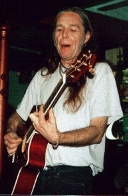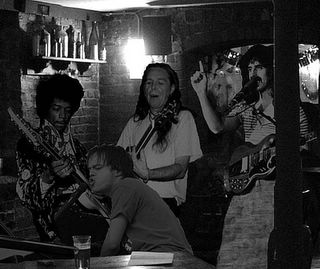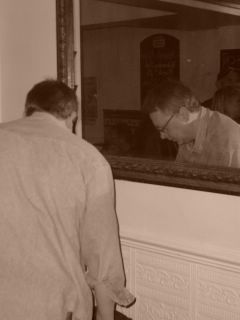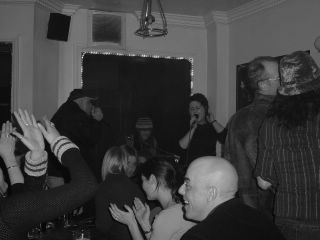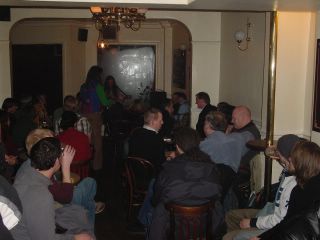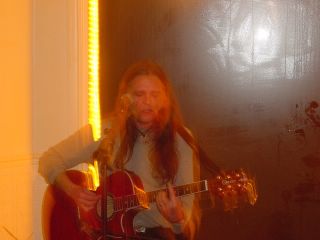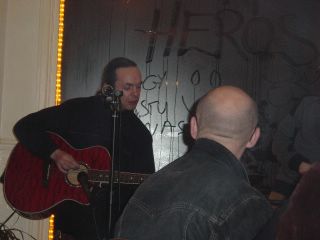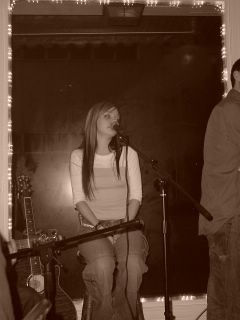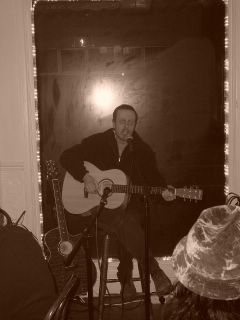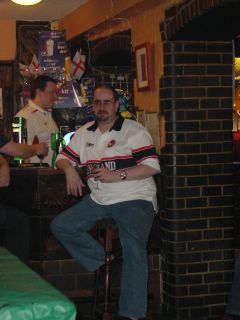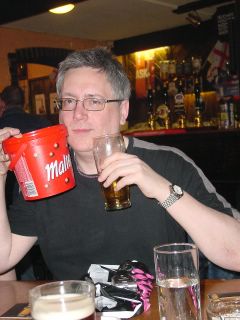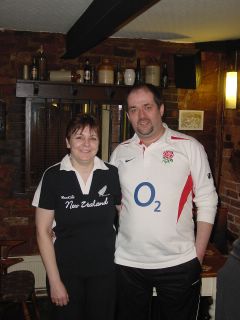Posted @ 18:00Just Another Post
The more potential blog posts I think up, the less actually get written, let alone posted. I have the distinct feeling of living close to a black hole which sucks in every moderately good idea I have that I feel necessary to communicate with the great electronic community. I suspect that this black hole is the work my arch-nemesis; a dastardly creation of my own Moriarty. The purpose of this black hole is to make sure that the more I try and do, the less actually gets done.
The other explanation for the lack of posts is that I just haven't got around to them.
Hunt the Capo
This is a newly invented game that I'm hoping to persuade the relevant authorities that it ought to be a major sport with Olympic representation. It is a deceptively simple game; the rules are easy to learn but the skill is hard to acquire.
For the uninitiated, a capo (short for capo di tastiera; Italian: "head of the fingerboard") is a device used by performers on guitar-like instruments which clips across the fingerboard in order to raise the pitch. It is, however, unnecessary to know this. It is also unnecessary to be able to play the guitar (although, being able to play the guitar badly may add to your enjoyment of the event).
The rules are very simple:
- The Game is played by three players.
- The Game requires a capo and a house. Beer, wine and snacks are optional.
- One player, designated Robert, is selected to own the capo. This is done either by drawing lots, throwing a die or by determining that the name of the player really is Robert.
- There can be only one player who is really called Robert in any one game.
- Robert plays with the capo (using it for its designed purpose; simply treating it as an exercise machine for the hand; finding a way to turn it into an amusing sex toy; etc.) and then, at times, leaving it on the table in the kitchen, on the small table in the lavatory where the magazines are or just letting it lie on the sofa. At some point, Robert must forget where he last put it.
- It is not enough for Robert to pretend that he doesn't know where the capo is, he must really forget where it is.
- The other two players - who are traditionally, but not necessarily, called Roger and Tina - must not on any account attempt to notice exactly where Robert has lost the capo. They must strenuously ignore the location of the capo.
- The players then go about their business: eating snacks and drinking beer (if provided), having conversations, attempting to program their mobile phones, telling jokes, singing songs, listening to music, picking their nose; anything that takes their fancy.
- At some time in the following thirty minutes, the coffee table will be cleared to make room for snacks and beer (or whatever).
- Some time later in the proceedings (not less than one hour after Robert loses the capo and not more than forty-five minutes after the last can of beer has been drunk), Robert will seek out the capo (perhaps to use whilst playing the guitar). Robert indicates this moment by uttering the formula: "Where's my bloody capo?".
- Now all three players must hunt the capo.
- It is vitally important that everybody makes known their pet theory about where they last saw the capo. The referee will award points for creativity, style and content. Points will be deducted for prosaic banality and for failing to control the widget in the beer can and splashing beer on the coffee table.
- The person who finds the capo gets lots of points.
- The winner is the person with the most points who isn't called Robert.
- The game must be completed before Ian arrives so that he gets confused about all references to the game.
Exploding Potatoes
It has become apparent that a significant proportion of potatoes (25% at the last serious survey) will explode at the earliest opportunity whilst being baked in an oven. Whether this is a political act, a religious observance, military aggression or some form of ritual suicide has not yet been determined. What is certain is that if four potatoes are placed in an oven (which, by chance, is on and quite hot), one of them will explode at some point in the evening before being eaten.
The explosion is quite subtle and is often mistaken for mild flatulence amongst the assembled company. On inspection, however, the oven will be found to contain three whole potatoes and one exploded one. This is not a problem (except for cleaning the oven) so long as 25% of the assembled company have previously eaten a bacon sandwich and are not particularly hungry and are called Ian.
Tomorrow
Tomorrow is April Fool's Day. Why do only April Fools have their own day? What about May, June and July fools? And, most importantly, what about people who are fools all the time?
P.S.
As I mentioned in passing to my Mother recently, some of the events mentioned in these posts are not entirely true or are subject to a small amount of exaggeration.

